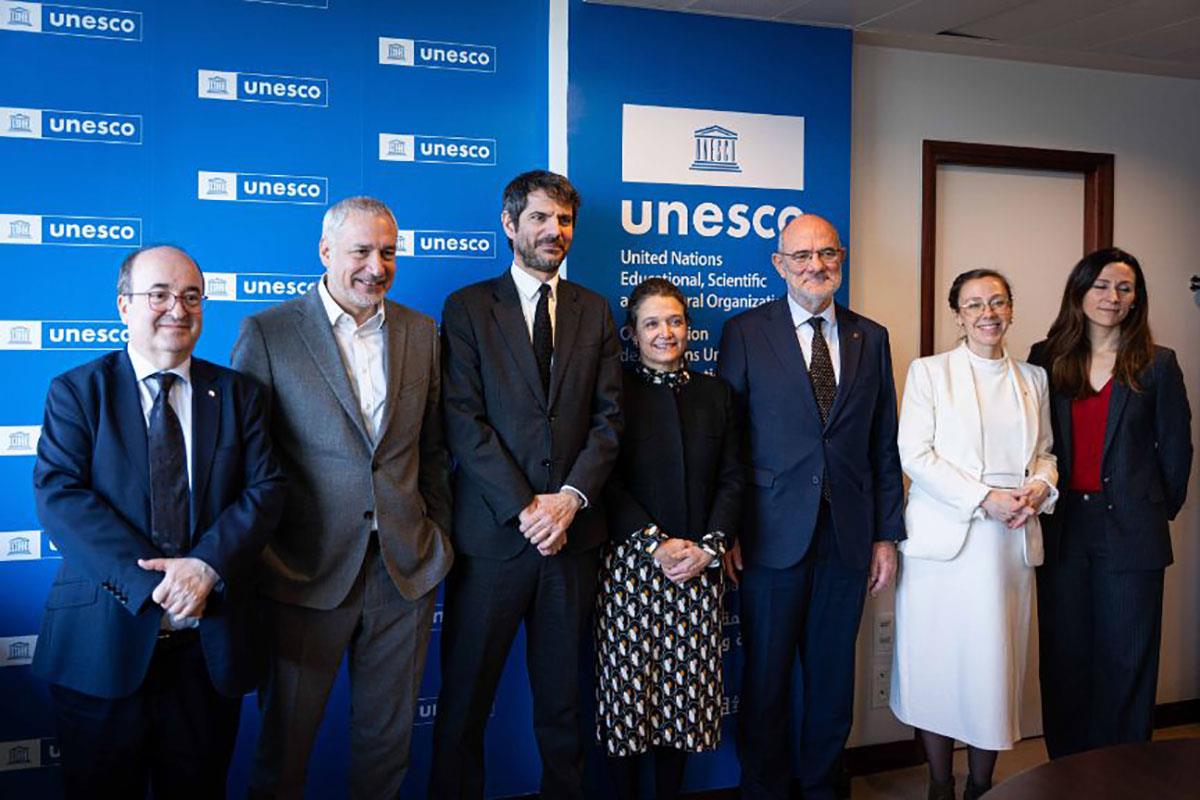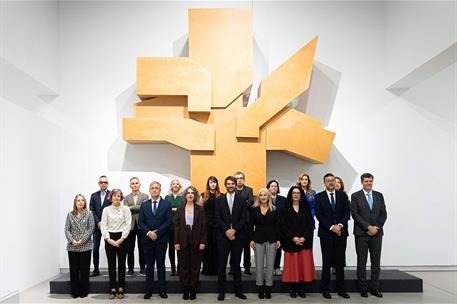Urtasun and UNESCO agree to include a parallel conference dedicated to young people in Mondiacult 2025
News - 2025.3.19
 The Minister for Culture, Ernest Urtasun, at the meeting held in Paris
The Minister for Culture, Ernest Urtasun, at the meeting held in Paris
The Minister for Culture, Ernest Urtasun, met in Paris with the Director-General of UNESCO, Audrey Azoulay, and the Assistant Director-General for Culture, Ernesto Ottone, at the UNESCO headquarters to share the progress made in preparation for Mondiacult 2025, the World Conference on Cultural Policies and Sustainable Development that Spain will host in the city of Barcelona from 29 September to 1 October 2025. It will be the global reference space for charting the cultural agenda of the future, where UNESCO's 194 Member States will address key issues such as cultural rights, the impact of artificial intelligence on culture, the role of culture in education and climate change, and peace building through culture.
As Urtasun explained, "in the coming months we will continue to work with UNESCO and all the actors involved to ensure that Mondiacult 2025 is a turning point in the construction of a new global cultural governance and in the strengthening of international alliances for the benefit of culture and sustainable development".
In the meetings held with UNESCO around the summit, Urtasun has agreed to promote, as a new feature, a conference in parallel to the plenary sessions of Mondiacult 2025 in which young people will play a leading role. "We believe that this initiative is key to ensuring that future generations are not just spectators, but protagonists in the design of the cultural policies that will shape the 21st century," said the minister. He also stressed that "this initiative seeks not only to enrich the discussion and broaden the collaborative ecosystem, but also to encourage the inclusion of new voices that bring freshness and dynamism to the global cultural agenda".
Thus, 'Mondiacult Youth' will be set up as a space running alongside the plenary sessions where young people between 18 and 25 years of age from different regions of the world can actively participate, debate and contribute their views on the big challenges in global cultural policy. Participants will be selected by asking the presidents, vice-presidents and rapporteurs of the various United Nations Member State Regional Groups to invite a young person to attend. The Ministry of Culture will cover the travel, accommodation and meals of the selected young people during the event. The aim is not only to get them to reflect on the themes of Mondiacult, but also to formulate concrete proposals and conclusions that will be presented at the close of the conference.
Meeting with the French Minister of Culture
Urtasun also held a meeting with the French Minister of Culture, Rachida Dati, who received him at the ministerial headquarters, with the aim of strengthening ties in cultural matters. At this meeting they discussed various issues of common interest, with a special focus on the Statute of the Artist and the labour rights of creators.
They focused on protecting and improving the conditions of cultural professionals, sharing experiences and best practices in terms of labour regulation, access to social security and recognition of intermittent nature of the sector. In Urtasun's words, this is "another step forward in Spain's commitment to guarantee culture with rights and to advance in the construction of a fairer and more equitable European framework for those who work in artistic creation".
Finally, the Minister for Culture will take part in UNESCO's tribute to Federico Mayor Zaragoza, who was its Director General between 1987 and 1999, and who died in December last year.
Non official translation





